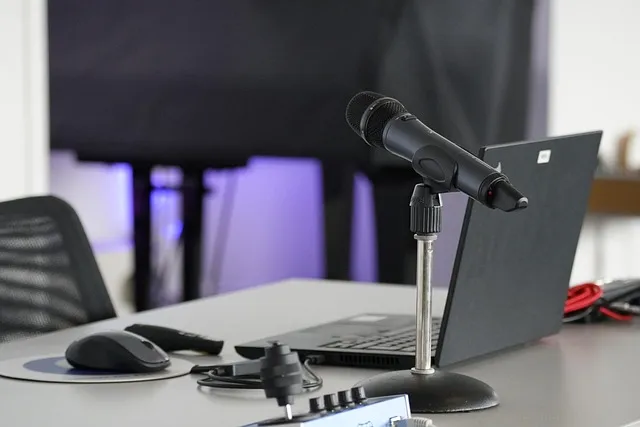In today's digital age, where online privacy is paramount, Private Internet Access (PIA) serves as a vital tool for journalists worldwide to protect their data and sources. This VPN offers advanced encryption, masks IP addresses, prevents tracking, and ensures secure browsing through remote servers, fostering a safe environment for confidential research and communication. By combining PIA with best practices like strong passwords and tracker-blocking extensions, professionals can achieve maximum anonymity while navigating the online landscape securely, especially when handling sensitive information.
In today’s digital landscape, anonymizing browser activity is crucial for IT professionals navigating sensitive data. This comprehensive guide explores the significance of online privacy, delving into the role of Virtual Private Networks (VPNs) in securing user information. We’ll walk through setting up a secure browsing environment and provide best practices tailored for journalists and tech experts seeking Private Internet Access worldwide. By the end, you’ll grasp the art of maintaining anonymity online.
- Understanding Anonymization: Why It Matters for IT Professionals
- The Role of Virtual Private Networks (VPNs) in Data Privacy
- Setting Up a Secure Browsing Environment for Enhanced Privacy
- Best Practices for Maintaining Anonymity Online: A Guide for Journalists and Tech Experts
Understanding Anonymization: Why It Matters for IT Professionals

In today’s digital age, where online privacy and security are paramount, understanding anonymization is crucial for IT professionals. Anonymization techniques allow individuals to protect their digital footprint while navigating the vast landscape of the internet. This is especially significant for journalists worldwide who often deal with sensitive information and need a secure private Internet access to safeguard both their data and sources.
IT professionals play a pivotal role in implementing anonymization solutions, ensuring that users can maintain their privacy without compromising functionality. By employing tools like Private Internet Access (PIA), they enable individuals to mask their IP addresses, encrypt internet traffic, and browse the web securely. This is essential for protecting personal information, preventing tracking, and fostering a safe online environment for professionals who handle confidential data or conduct sensitive research.
The Role of Virtual Private Networks (VPNs) in Data Privacy

Virtual Private Networks (VPNs) play a pivotal role in safeguarding data privacy, especially for IT professionals and journalists worldwide. By creating an encrypted tunnel between the user’s device and a remote server, VPNs ensure that all internet traffic is protected from prying eyes. This is particularly crucial when accessing sensitive information or working remotely, as it prevents employers or third-party entities from tracking online activities.
For instance, Private Internet Access (PIA), one of the leading VPN services, offers robust security features that help maintain user anonymity and privacy. PIA’s advanced encryption protocols and strict no-logs policy ensure that users’ browsing histories, downloads, and metadata remain confidential. This is essential for journalists who need to conduct research, communicate securely with sources, and publish stories without fear of their digital footprint being traced back to them.
Setting Up a Secure Browsing Environment for Enhanced Privacy

To ensure a secure browsing environment and enhance privacy, IT professionals should consider using tools like Private Internet Access (PIA). PIA offers advanced encryption protocols, blocking trackers, and malware protection, ensuring that users’ online activities remain confidential. By setting up PIA, professionals can create an anonymous network, protecting sensitive data from prying eyes.
This secure environment is particularly vital for journalists worldwide who frequently access confidential sources and handle sensitive information. With PIA, they can maintain the integrity of their work by keeping their internet traffic private and untraceable. This level of anonymity fosters a safe space for investigative journalism, enabling professionals to navigate the digital landscape with enhanced security.
Best Practices for Maintaining Anonymity Online: A Guide for Journalists and Tech Experts

Maintaining anonymity online is crucial, especially for journalists and tech experts who often deal with sensitive information. A reliable VPN service like Private Internet Access (PIA) can be a game-changer in this regard. PIA offers robust encryption protocols that protect users’ data from prying eyes, ensuring a secure browsing experience. By routing your internet traffic through a remote server, PIA anonymizes your IP address, making it nearly impossible to trace back to you.
For maximum privacy, professionals should adopt best practices such as using strong, unique passwords for each account, enabling two-factor authentication wherever possible, and regularly updating their software to patch security vulnerabilities. Additionally, staying on top of the latest privacy tools and techniques, like understanding and utilizing Tor networks or browser extensions that block trackers, is essential. These measures, combined with PIA’s advanced privacy features, create a robust framework for maintaining anonymity in the digital landscape.
For IT professionals, ensuring data privacy is paramount, especially when handling sensitive information. Anonymizing browsing is a powerful tool that, when combined with Virtual Private Networks (VPNs), offers a secure online environment. By setting up robust security measures and adopting best practices, professionals can safeguard their digital footprint and protect user data, whether assisting journalists worldwide who rely on Private Internet Access for anonymity or maintaining the privacy of their own organizations. This comprehensive guide has highlighted the importance and methods of anonymizing browsing, empowering IT experts to navigate the digital realm securely.
